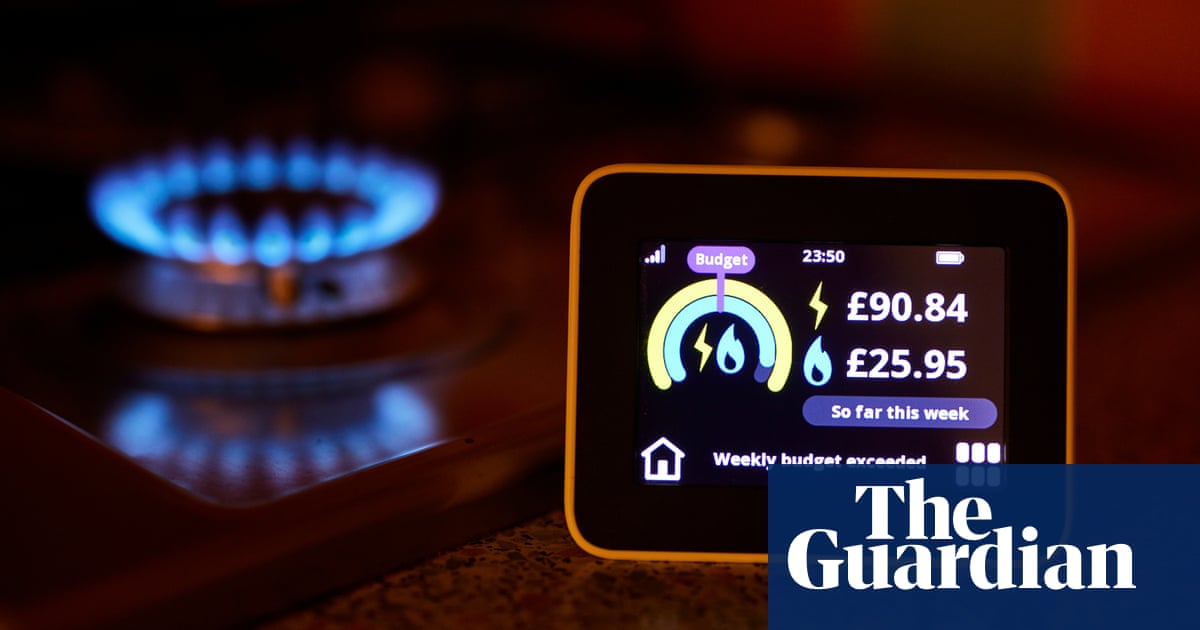
Energy bosses are dialling up the pressure on ministers to shield consumers from soaring gas and electricity bills, with calls on the government to set up a multibillion-pound scheme to help spread the cost to households over a number of years.
Amid warnings that energy bills could rise by 50% next year, triggering a “national crisis”, suppliers such as EDF have called on the Treasury to follow other European countries by cutting VAT and green levies to bring down bills.
One idea gaining traction within the industry, including at the trade body Energy UK, involves a government-administered scheme to smooth the impact across multiple years so that consumers aren’t hit all at once.
Under plans sketched out by energy suppliers, one or more commercial lenders – such as banks – would cover the immediate cost that they are incurring to buy energy on wholesale markets at record prices, with a sum of at least £7bn required. The loans would not require a government guarantee, but officials would be responsible for ensuring repayments.
Fans of the plan believe this could avert the need to pass on the huge increase in gas prices with an immediate hike in the energy price cap that limits what suppliers can charge bill payers. The cap is forecast to rise from £1,277 to nearly £2,000 in April without intervention.
With lenders shouldering the upfront cost of wholesale energy prices, suppliers would then be able to stagger tariff increases across multiple years, repaying the lenders through an industry-wide scheme overseen by the government. Ministers and officials are understood to be considering the proposal.
One industry chief executive told the Guardian this would avoid extra spending or loan guarantees from the Treasury.
“The mechanism could be funded by industry, the government would just need to make sure everyone paid back their part of it and that there were no free riders,” he said. “It just needs enforcement. We need to make sure we don’t slam households with all the costs in the single year.”
Dan Alchin, the deputy director of retail at Energy UK, said the plan was among a number of options that could help ease the crisis. “Italy has stepped in and helped suppliers through loan facilities to spread increases out over longer periods of time,” he said. “We’re still working through how this could work in practice but that’s one way it could be facilitated. You don’t hit people with price increases all at once, you spread it out.
“We need government to be thinking about these sorts of options and to take action to mitigate the worst impacts.”
On Thursday the shadow energy minister, Ed Miliband, called on the government to stop families being “clobbered” with the increased cost of heating and powering their homes, by removing VAT on bills for six months.
Spain has cut energy taxes, while Germany has slashed green levies on household bills, designed to support the development of renewable energy. But Energy UK said measures like these would save less than £300, significantly less than the £600 expected rise in the average annual bill when the price cap goes up next year.
Since 1 October, the cap – set by the industry regulator Ofgem – has been set at a record £1,277. It is due to change on 1 April when Ofgem is expected to raise it significantly, prompting predictions that the cap will hit £2,000 in 2022.
One industry source said bills would be closer to £3,000 if energy suppliers were able to pass on the full cost of gas prices. “As it is, the price cap is hugely limiting the impact on households,” he said. “That’s a dam that will burst at some point. You can only hold the pressure for so long.”
He said scrapping green levies and VAT “wouldn’t touch the sides” but that an industry-wide loan facility could have a larger impact. “We’ll still have to pay it but we’re not trying to pay off a one-in-30-year event in a single year.”
EDF, the UK’s fourth biggest energy supplier, said the situation was “critical” and the government must “act now to support energy customers”. Philippe Commaret, the managing director for customers at EDF Energy, said that by next October the UK’s energy price cap “could easily exceed £2,000”.
A government spokesperson said: “The energy price cap is insulating millions of customers from record increases in global gas prices and will remain in place, and at the same rate, this winter. We continue to support those most in need through our £500m household support fund, the warm home discount and winter fuel payments.”












